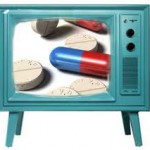If you like this blog, pass it on to your friends. Let’s keep the conversation going.
On April 4, 2012 there was a lot of excitement in the press about the fact that nine different boards of medical specialists are now recommending that doctors do fewer tests on patients. The specialties include family practitioners, cardiologists, radiologists and
cancer specialists. Though recommendations to do less testing have been made before and intensely resisted — note the U.S. Preventive Services Task Force recommendation in 2009 to do less mammography screening — for some reason, the fact that medical specialists are making the suggestion now stimulates hope that change will happen. I’m not so sure. Here’s why.
The Culture of Health Care in the U.S.
You may have noticed that, in this country, we seem to approach health care like other commodities: I need or want it and I’m going to get it. There’s a reason we’re referred to as health care “consumers.” (Some years ago, Fran Visco of the National Breast Cancer Coalition labeled women with breast cancer as “breast cancer consumers.” Don’t try to dissect the phrase; you won’t like what you find.) People who
have resources, who are driving the high cost of medical care, see health care as a thing they’re entitled to have, no matter what it costs or whether it has more benefits than risks. And “health care” has come to include all of the tests, drugs, and procedures that might be available to address a medical issue.
This culture has been helped considerably by the internet, where patients can find information on all sorts of medical care
that might or might not work. And the culture has become so ingrained that doctors now fear medical malpractice lawsuits when they decline to order a test or a drug that a patient wants.
Will doctors refuse to prescribe a drug or a test that a patient is demanding just because their specialty group has said, “don’t do it?” I doubt it, because the consequences of not prescribing the thing are much more concrete than what might happen to the doctor if s/he ignores the specialty group’s recommendation. If you were a doctor, would you fear more the patient’s complaint (and even law suit) or the knowledge that you are going against you medical specialty’s recommendation, possibly justifying your behavior on the grounds of precaution?
The Role of Patient Advocacy Groups
The cultural drivers toward more and more care are supported by many health advocacy groups focused on specific diseases. From the breast cancer organizations that urge frequent mammograms, to the prostate cancer groups that insist that a PSA test will save
your life, to the lung cancer groups urging screening with spiral CT scans, to the osteoporosis organizations urging annual bone density tests and pills to address risk rather than disease, the push for more interventions is unrelenting.
Often, these groups receive funding from the drug companies or device manufacturers that sell the things (medication, devices, testing equipment, lab facilities) required for the interventions the groups promote. In other settings, this would be a conflict of interest.
Don’t think for a moment that groups whose existence is premised on a belief in a medical test will go quietly away if doctors try to do less of the test. The outcry every time there is a call for less mammography or less PSA testing is a testament to the power of these organizations to mobilize people to protect their turf.
Role of Industry
Another driver of the health care consumer culture in this country is the companies that make drugs and medical devices. You are well aware that they are in the business of making money. One of the ways they do that is by getting consumers to demand things of
their doctors. They do this by advertising their products to consumers. Direct-to-consumer advertising of drugs, which has been happening in the way it is now in the U.S. since the 1970’s, has helped drive demand for and consumption of medical care off the charts.
One of the reasons patients demand so much of their doctors is because the drug companies tell them to. You know: the ads that end with, “Ask your doctor.”
Want to Change the Culture? Ask Different Questions
If you want to change the culture of health care, think about asking different questions like:
— Do I need this treatment? Will it help me? What percentage of patients who receive this treatment benefit from it? How great is the benefit? What are the risks?
— Is the test or treatment my doctor is recommending one I need? What’s the purpose of this test or treatment? Does it address a condition I have?
— Is the advocacy group that’s recommending this device funded in part by the manufacturer?
— Is my Congressional representative committed to ending direct-to-consumer drug advertising?
The doctors alone can’t change the culture. We all have to do it.
P.S. Speaking of culture change, don’t miss Pink Ribbons, Inc., the film that is changing the culture of breast cancer, when it comes to a theater near you.
culture of breast cancer, when it comes to a theater near you.
© Barbara A. Brenner 20






Having recently gone through a painful and invasive medical test, which I did not believe was necessary, I believe some doctors simply pad their coffers with tests. This is not the first time this has happened to me.
I missed this blog entry til now. Thanks for this one.
You are so right. I find I have been one of those consumers of more health care than I really needed. I didn’t mean to be. Now, the question that is on the topmost of my consciousness, which is implied by your question “what is the purpose of this test,” is: Is there some reasonable chance that you (the doctor) will learn something from this test that will affect your (the doctor’s) medical advice to me? It’s a new learning for me that I don’t need to know what is causing symptoms that concern me if the information about cause won’t change anything about what I should do as self-care and what treatment is or is not indicated. I don’t want our society spending valuable health dollars on satisfying my or my doctor’s curiosity about what is going on to cause my symptoms. I used to assume that, if the doctor offered a test to learn more about symptoms that concerned me, I should have the test so we could learn something more about the symptoms. But, that makes no sense if the learning has no impact on treatment decisions. I used to hope to learn from tests that nothing terrible was going on in this body that is due to self-destruct someday. Now I get it that that does not make sense. Much as we would like, no test can guarantee us that we are ok (for now).
I don’t so much blame my doctors. I think I have had good doctors. I blame the system within which they work and I seek medical care, the system that you so eloquently describe in this and other posts. Environments/systems so greatly affect behavior.
Some tests are necessary to guide your doctor’s medical advice, some are not. It’s a good question to ask your doctor about any test: will the results of this test effect in one way or another the advice you give me? If the answer is no, ask why the test is recommended. If you’re not satisfied with the answer, skip the test.
exactly.